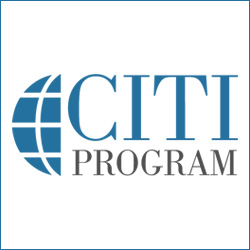This is a sponsored message.
Overview
Decentralized clinical trials (DCTs) represent the shift towards implementing virtual research studies using digital health tools to gather data and monitor patient activity. During the COVID-19 pandemic, the clinical industry experienced significant disruption to traditional practices. To mitigate the spread of coronavirus, officials executed temporary guidance that limited person-to-person contact and forced many on-site physical clinical trials to a halt.[i],[ii]
Despite the challenges, the pandemic presented an opportunity to test the strength of deploying fully remote clinical trials from beginning to end, relying solely on innovative digital health technologies (DHTs) like real-time video conferencing, electronic data capture, eConsent, and eCOA (electronic clinical outcome assessments). Empowered by revolutionizing artificial intelligence (AI) enabled DHTs, investigators noted that DCTs could yield extraordinary results in accuracy in data acquisition, patient outreach and engagement, retention, and communication.[iii],[iv],[v]
Moving Beyond COVID-19: The Benefits of DCTs
In May of 2023, the U.S. Food and Drug Administration (FDA) issued guidance towards advancing decentralized trial activities and confirmed that they, along with patients and other key stakeholders, found great benefits in the decentralized trial model.[vi]
Patient-Centric Attributes
The virtual aspects of DCTs and DHTs can be positive for subjects. Investigators report subjects welcome virtual communication and data reporting because they offer greater convenience, provide treatment privacy and autonomy, and ease some subjects’ anxiety when going into the clinic sites. For many, DCTs also overcome geographic distance barriers. This digital bridge allows greater participation of patients who might not otherwise be able to volunteer for a trial due to the burden of getting to a clinic or hospital.[vii]
Economic Considerations
Investigators and sponsors can use AI and specific algorithms to identify diverse patient populations most suited for the study without proximity limitations, thus allowing them to streamline high-expense areas of trial recruitment. Investigators can more easily fulfill recruitment criteria and accelerate the study timeline, allowing for an increased return on investment by reducing operational costs.[viii], [ix]
Recruitment Diversity and Inclusion
Inclusion and diversity in subject recruitment are challenging. Only about 5% of eligible patients enroll in clinical trials, with minority populations representing an even lower percentage.[x] However, DCTs offer a chance for investigators to recruit potential subjects despite barriers like transportation, language, physical disabilities, childcare responsibilities, and caregiving duties. While DCTs do not address all the factors related to the low recruitment of underrepresented populations, DCTs may offer a potential platform to explore corrective strategies.[xi]
Recruitment Opportunities for Rare Diseases
Rare disease studies experience many challenges. In the U.S. alone, rare diseases impact about 30 million people.[xii] Because of the small recruitment pool available for each orphan drug study, however, investigators face difficulties meeting the burden of enrolling studies with sufficient eligible subjects. Though rare disease studies typically feature crossover and adaptive study designs, the hope is that decentralized study models can help boost recruitment numbers by utilizing advances in AI-driven digital outreach methods to target specific patient populations.[xiii] Published perspectives indicate rare disease studies are likely to receive a much-needed boost in funding incentives and tax credits to push new drug candidates into the development pipeline. DCTs will be a part of these increased efforts.[xiv]
Challenges Associated with the Decentralized Clinical Trial Model
Data Protection
The goal of DCTs is to take a trial out of the confines of the clinic. However, when engaging in appointments over the phone or the internet, personal health information may be shared openly. With DCTs come the prospect of loosening control over data collection and the increasing possibility of data breaches. The interconnectedness of DHTs, particularly within mobile technologies, increases concerns of data security, data breaches, and leaks of secure health information.[xv] Mitigation actions include enhanced data encryption, two-layer SSL, and surveillance activities.
Accuracy and Access
Decentralized trials often rely on the patient to be the reporter of their own clinical data. Some of this data reporting can be transmitted directly to the clinical investigators. Commercial DHTs (such as Apple Watches or Fitbits) can be interfaced without patient intervention. However, other DHTs require patient handling. Patient-operated DHTs such as pulse oximeters and spirometers are commonplace in decentralized trials. Other DCT data relies on electronic patient-reported outcomes (ePRO) that take the form of subjective questionnaires. Some of these data collection methods are prone to inconsistencies and inaccuracies.[xvi] It would be easy for patients to make mistakes, and investigators do not have a real-time method for verifying the accuracy.
Other considerations relate to the lack of universal accessibility to essential technologies and systems. The digital divide along socio-economic lines means that not everyone has equal access to high-speed internet. There is also the question of digital fluency, as not all groups have equivalent proficiency or comfort with smartphones, tablets, and trouble-shooting poor internet connections.[xvii],[xviii]
Security and Patient Safety
Since DCTs rely upon couriers and outsourced laboratory work, there is some concern for patient safety due to the potential for fraudulent drivers, laboratory, and delivery personnel. If the data collection includes a laboratory specimen, patients must be given sample-specific lab kits and clear instructions on their usage to avoid contamination.[xix] Another layer of concern is how to report and react to adverse events. With centralized trials involving visits to clinics, reports of adverse events could be addressed in a clinical setting. The clinic staff would presumably know what questions to ask to ascertain the event’s severity. DCTs might miss that needed element. Workable solutions include real-time access to adverse event reporting software whereby a patient report of an adverse event can trigger the need for a safety assessment visit if certain conditions are met.[xx]
Summary
The COVID-19 pandemic catalyzed the adoption of DCTs and allowed many clinical teams to continue to conduct research. DCTs provide sponsors and investigators with new tools to enhance patient recruitment, engagement, and retention. By breaking down the critical barriers to enrollment, such as accessibility and participation equity, investigators can more effectively recruit for trials. Decentralization presents many advantages for drug discovery and other life-saving interventions.
Additional Insights
CITI Program’s webinars on DCTs provide additional insight on virtual study visits and workforce considerations.
References
[i] U.S. Food and Drug Administration (FDA). 2021. “Conduct of Clinical Trials of Medical Products During the COVID-19 Public Health Emergency.” Accessed August 21, 2023.
[ii] Van Norman, Gail A. 2021. “Decentralized Clinical Trials: The Future of Medical Product Development?” JACC: Basic Translational Sciences 6(4):384-7.
[iii] Thomas, Kevin A., and Łukasz Kidziński. 2022. “Artificial intelligence can improve patients’ experience in decentralized clinical trials.” Nature Medicine 28:2462-3.
[iv] Banks, Marcus A. 2021. “Core Concept: In the Wake of COVID-19, Decentralized Clinical Trials Move to Center Stage.” Proceedings of the National Academy of Sciences of the United States of America 118(47):e2119097118.
[v] Gibson, C. Michael, Steven Steinhubl, Dhanunjaya Lakkireddy, Mintu P. Turakhia, Rod Passman, W. Schuyler Jones, T. Jared Bunch, Anne B. Curtis, Eric D. Peterson, Jeremy Ruskin, Leslie Saxon, Michael Tarino, Khaldoun G. Tarakji, Nassir Marrouche, Mithun Patel, Ante Harxhi, Simrati Kaul, Janeta Nikolovski, Stephanie Juan, Kevin Wildenhaus, C.V. Damaraju, and John A. Spertus. 2023. “Does early detection of atrial fibrillation reduce the risk of thromboembolic events? Rationale and design of the Heartline study.” American Heart Journal 259:30-41.
[vi] U.S. Food and Drug Administration (FDA). 2023. “Decentralized Clinical Trials for Drugs, Biological Products, and Devices.” Accessed August 21, 2023.
[vii] Agrawal, Gaurav, John Xue, Rachel Moss, Ralf Raschke, and Stephan Wurzer. 2021. “No place like home? Stepping up the decentralization of clinical trials.” McKinsey & Company Insights, June 10.
[viii] Buvailo, Andrii. 2023. “The Rise of Decentralized Clinical Trials: 10 Companies Pushing the Field Forward.” Biopharma Insight Blog, May 12.
[ix] DiMasi, Joseph A., Zachary Smith, Ingrid Oakley-Girvan, Andrew Mackinnon, Mary Costello, Pamela Tenaerts, and Kenneth A. Gertz. 2023. “Assessing the Financial Value of Decentralized Clinical Trials.” Therapeutic Innovation & Regulatory Science 57:209-19.
[x] Guerra, Carmen E., Mark E. Fleury, Leslie P. Byatt, Tyler Lian, and Lori Pierce. 2022 “Strategies to Advance Equity in Cancer Clinical Trials.” ASCO Educational Book. 42:127-137. Accessed August 21, 2023.
[xi] Goodson, Noah, Paul Wicks, Jayne Morgan, Leen Hashem, Sinéad Callinan, and John Reites. 2022. “Opportunities and counterintuitive challenges for decentralized clinical trials to broaden participant inclusion.” NPJ Digital Medicine 5(1):58.
[xii] U.S. Governmental Accountability Office (GAO). 2021. “Rare Diseases: Although Limited, Available Evidence Suggests Medical and Other Costs Can Be Substantial.” Accessed August 21, 2023.
[xiii] Moss, Nick. 2020. “Decentralized Trials Fuel AI Revolution in Clinical Research.” Contract Pharma Blog, November 17.
[xiv] Ghadessi, Mercedeh, Junrui Di, Chenkun Wang, Kiichiro Toyoizumi, Nan Shao, Chaoqun Mei, Charmaine Demanuele, Rui (Sammi) Tang, Gianna McMillan, and Robert A. Beckman. 2023. “Decentralized clinical trials and rare diseases: a Drug Information Association Innovative Design Scientific Working Group (DIA-IDSWG) perspective.” Orphanet Journal of Rare Diseases 18(79).
[xv] Vayena, Effy, Alessandro Blasimme, and Jeremy Sugarman. 2023. “Decentralised Clinical Trials: Ethical Opportunities and Challenges.” The Lancet Digital Health 5(6):E390-4.
[xvi] Petrini, Carlo, Chiara Manneli, Luciana Riva, Sabina Gainotti, and Gualberto Gussoni. 2022. “Decentralized Clinical Trials (DCTs): A Few Ethical Considerations.” Frontiers in Public Health 10:1081150.
[xvii] Vayena, Effy, Alessandro Blasimme, and Jeremy Sugarman. 2023. “Decentralised Clinical Trials: Ethical Opportunities and Challenges.” The Lancet Digital Health 5(6):E390-4.
[xviii] Petrini, Carlo, Chiara Manneli, Luciana Riva, Sabina Gainotti, and Gualberto Gussoni. 2022. “Decentralized Clinical Trials (DCTs): A Few Ethical Considerations.” Frontiers in Public Health 10:1081150.
[xix] Moretti, Morgana. 2022. “Clinical Laboratory Solutions for Decentralized Clinical Trials.” Today’s Clinical Lab Trends, November 22.
[xx] Vayena, Effy, Alessandro Blasimme, and Jeremy Sugarman. 2023. “Decentralised Clinical Trials: Ethical Opportunities and Challenges.” The Lancet Digital Health 5(6):E390-4.



